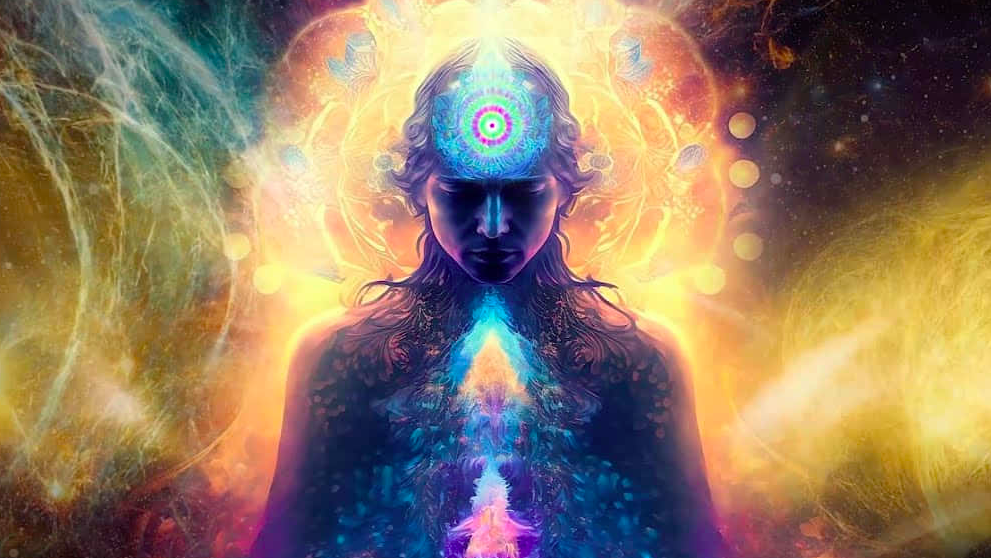Vedānta explains psychic powers as natural gifts of the mind. But true freedom lies beyond them in Self-realization and liberation.
The Fascination with Psychic Powers
Some people are born with unusual sensitivities: they intuitively sense emotions, dream of events before they occur, or feel energy shifts others cannot. In yogic traditions, these gifts are called siddhis – subtle powers or psychic abilities.
In today’s world, siddhis are often romanticized as signs of spirituality. But Vedānta makes an important distinction: psychic powers are not the same as spiritual realization.
What Are Psychic Abilities?
The word siddhi means perfection or accomplishment. In the Yoga Sūtras of Patañjali (a sister text to Vedānta), siddhis are described as capacities that emerge when the mind becomes still and refined.
Some examples include:
- Clairvoyance (seeing beyond physical limits)
- Clairaudience (hearing subtle sounds)
- Telepathy (knowing others’ thoughts)
- Precognition (seeing glimpses of the future)
- Healing energy (ability to influence health or environment)
These are not “miracles.” They are natural expressions of consciousness reflected through a sensitive and sattvic (pure) mind.
Why We Are Born With Them
Vedānta explains two reasons:
- Karmic Impressions (Saṃskāras):
Gifts cultivated in past lives can carry over. A person who practiced deep meditation before may be born with natural intuition now. - Purity of Mind (Sattva):
A clear, childlike mind (dominated by sattva guṇa) reflects subtle truths more easily, much like a clean mirror reflects light.
This is why some are “born psychic” – it is a continuation of their journey, not random chance.
The Danger of Mistaking Powers for Liberation
Here lies the Vedāntic warning: psychic abilities can fascinate and trap the seeker.
- They inflate the ego: “I am special, I have powers.”
- They distract: instead of going inward, one spends life chasing visions and experiences.
- They bind: even good powers keep the soul tied to the cycle of karma and rebirth.
Sri Ramakrishna said:
“Siddhis are like toys given to a child to keep him busy. But the wise child throws them away and runs to the Mother.”
The “Mother” here is liberation (mokṣa), the ultimate freedom beyond birth and death.
Can Psychic Powers Be Used to Help Others?
This is a natural question: if one has these gifts, is it wrong or right to use them for others? Vedānta offers a balanced view.
- Yes, They Can Serve Compassion.
Psychic abilities may help ease suffering through healing presence, intuitive guidance, or deep empathy. When offered selflessly, they can be part of karma yoga (selfless action). - But They Cannot Grant Liberation.
You can soothe someone’s body, comfort their emotions, or guide their mind. But liberation (mokṣa) is only possible through each soul’s own realization of the Self. Even the greatest guru cannot “give” freedom, they can only point the way. - The Risk of Ego.
If one begins to think, “I am the healer, I save others,” then powers become chains, strengthening ego instead of dissolving it. - The Right Attitude.
Vedānta advises: act as a channel, not the doer. Offer help with the awareness: “This is not mine; it flows from the Divine.” Serve without expectation, guide without attachment.
A Simple Example:
If someone comes to you in deep grief and you sense their pain, you may comfort them with presence or insight. This is a beautiful use of sensitivity. But the highest service is reminding them that their true Self is beyond pain – untouched, eternal.
Thus, siddhis may temporarily heal, but pointing someone toward their inner freedom is the greater gift.
What Is Spiritual Realization Then?
While siddhis operate within the realm of mind and senses, realization is beyond mind altogether.
Spiritual realization in Vedānta means awakening to the truth:
- “I am not the body, not the mind, not even the one who acts.”
- “I am the Self (Ātman), pure consciousness, infinite, eternal, and free.”
This realization does not give powers – it dissolves the need for them. The seeker discovers a freedom greater than any ability: the freedom of being untouched by all karma.
A Practical Example
Imagine two seekers meditating:
- Seeker A begins to hear inner sounds and see visions of light. They become excited, chase more experiences, and spend years cultivating powers.
- Seeker B quietly continues the inquiry, “Who am I?” They realize that they are the unchanging witness of all experiences.
The first gained siddhis. The second gained liberation. Vedānta honors both, but only the second is permanent freedom.
The Difference at a Glance
| Psychic Abilities (Siddhis) | Spiritual Realization (Mokṣa) |
|---|---|
| Powers of the mind | Awakening beyond mind |
| Temporary, karmically bound | Eternal, beyond karma |
| Can inflate the ego | Destroys the ego |
| Useful for service | Brings ultimate freedom |
| Found in some individuals | True nature of everyone |
Daily Reflection
When unusual sensitivities or intuitions arise, pause and ask:
- “Is this deepening my freedom, or binding me further?”
- “Am I seeking powers, or am I seeking truth?”
This clarity keeps the seeker aligned with Vedānta’s highest aim.
Conclusion
Psychic abilities are real and natural gifts born of past karma and inner purity. They can be used to help others, but never to liberate them. Healing and guidance are noble, but the highest service is to awaken others to their own Self, beyond all suffering.
Vedānta reminds us: siddhis belong to the realm of mind, while mokṣa belongs to the realm of truth. Powers may fade, but realization is eternal.
The wise use psychic gifts with humility, but never lose sight of the ultimate freedom:
I am the infinite Self, beyond body, mind, and powers – untouched, eternal, and free.


Leave a Reply